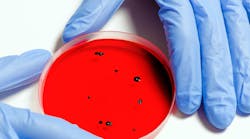Today, the U.S. Environmental Protection Agency (EPA) announced $6,198,689 in funding for five grants to support research on existing and novel technology for detecting and monitoring viruses from the feces in wastewater intended for water reuse applications.
The reclamation and reuse of wastewater has the potential to significantly increase the nation’s total available water resources. When recycling wastewater, a chief public health concern is the risk posed by the presence of viruses that can infect humans, which can be difficult to reduce with traditional sewage treatment approaches.
EPA expects the research from these grants will provide information that will enable wastewater operators, reuse projects, and state and local regulators to ensure the public is protected from these viruses when reusing municipal wastewater for various reuse applications.
“Safe and reliable water supplies are critical to our nation’s communities and economy,” said Wayne Cascio, acting principal deputy assistant administrator for science in EPA’s Office of Research and Development. “The research funded by these grants will coordinate water reuse research, help identify critical science gaps and accelerate opportunities for reuse.”
The following groups are receiving funding under these Nationals Priorities grant awards:
- Barnstable County Department of Health and Environment and Massachusetts Department of Environmental Protection, Mass., to identify wastewater technologies and treatment processes capable of removing viruses to allow safe reuse of the treated wastewater, and to evaluate the use of five surrogates as possible indicators for presence of human viruses during treatment processes.
- Tulane University, New Orleans, La., to develop a better understanding of viruses in different wastewater systems and design improved viral surrogate approaches that address challenges and shortcomings of current processes.
- University of California – Irvine, Calif., to conduct research that will result in recommendations of the best methods for identifying the viral risk for non-potable water reuse and standard operating procedures for these methods.
- University of Michigan — Ann Arbor, Mich., to develop surrogate-based frameworks for virus control through water recycling facilities.
- Water Research Foundation, Denver, Colo., to identify chemical and/or viral surrogates for virus reduction during wastewater treatment processes in real-world systems and create reduction methods for each treatment process.




